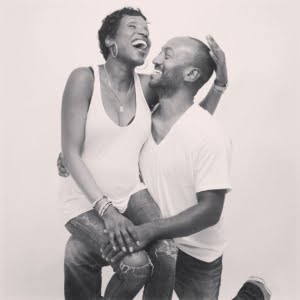Looking for relationship help? If you fear the love is gone in your relationship, this article is for you. San Diego Christian Counseling can offer support and guidance.
Put a person in a room by themselves and they seem perfect. Put others in that room with them, and we notice every human foible.
The Relationship Dance
The very nature of a relationship requires two people to be in close relation to one another – close in proximity and close in communion. Picture a relationship as a dance. Every act of affection, each loving message communicated, and still moments shared contribute to the dance steps.
 Sometimes the dance is a showstopper. Others watch in awe at how in tune the two appear, how the two seem perfectly matched, and how their life seems to be filled with snapshots of great times. Do we really know the intricacies of the dance, from the outside? Do we know and understand the amount of work and diligence it takes to learn the rules of the dance and master the steps?
Sometimes the dance is a showstopper. Others watch in awe at how in tune the two appear, how the two seem perfectly matched, and how their life seems to be filled with snapshots of great times. Do we really know the intricacies of the dance, from the outside? Do we know and understand the amount of work and diligence it takes to learn the rules of the dance and master the steps?
It requires deliberate continual effort. Because each person was created unique, bringing two together requires learning about the other person, making adjustments in yourself, and communicating consistently and purposefully. For every beautiful couple’s dance we see, there are hours and years of unseen diligence and practice – just like in a successful relationship.
Have you ever watched a couple stumbling over one another in a dance because they each decided to do the dance they wanted and those dances were disastrous when combined? The imagery sparks parallels to couples who aren’t getting along; couples who are complaining about one another; couples who appear to be spending less and less time together.
Both members of the couple have opted for an individual dance, one that no longer permits the seamless coming together and execution of a couple’s dance. They are now on separate sides of the dance floor and may soon be in entirely different ball rooms altogether.
Perhaps you have found yourself on the dance floor watching your partner drift away, dancing unfamiliar steps, steps you don’t like, or steps that actually hurt you. You suddenly think: When did this happen? I feel like we don’t even know each other anymore. They don’t even seem to care about me. Is my relationship over? How did we get here?
Do you continue dancing the dance you learned together years ago? Do you stop dancing altogether and retreat? Do you remain fixed on the idea that your partner is the one who changed the steps and they are responsible for coming back to the original dance (and you)? Or do you fight to discover and learn new dance steps?
How it Looks and Feels When the Dance Steps Change
C hances are good that you have witnessed the dissolution of a couple’s dance, or relationship. Perhaps you’ve witnessed your parents’ relationship change, strain, and ultimately dissolve. You’ve watched close friends split up. Maybe you have been touched by the pain of a relationship ending.
hances are good that you have witnessed the dissolution of a couple’s dance, or relationship. Perhaps you’ve witnessed your parents’ relationship change, strain, and ultimately dissolve. You’ve watched close friends split up. Maybe you have been touched by the pain of a relationship ending.
Contrary to what we tell ourselves, we aren’t the only ones experiencing relationship problems or in need of relationship help. The divorce rate in the United States is somewhere between 40 and 50%, and the rate of divorce continues to increase for those who engage in subsequent marriages.
What happens in a relationship that changes the dance? Who is responsible for changing the steps? And what exactly happens between that first misplaced footing to the ultimate dissolution of the pair?
You may have heard someone on the heels of separation or divorce say, “It just came out of nowhere.” It seems like a natural thing to say because in relationships it is dangerously easy to become complacent. After all, dancing the same dance over a number of years could get quite boring and when the dance gets boring, you find yourself going through the motions and skipping rehearsals that would solidify the dance and make the partners even stronger.
Relationship issues don’t just happen. They appear slowly but surely over time. The strongest indicator of whether or not your dance has changed is your thoughts about your relationship. If you’ve found yourself asking, “Why doesn’t she love me anymore?” or saying, “Things just don’t feel right,” you have discovered that the steps have changed and you’re likely looking for relationship help or advice.
Do you see yourself in one of these scenarios?
- You and your partner don’t really have anything new to talk about, or the only thing you ever talk about seems to be the kids.
- One or both of you are engaging in screen time more than face time.
- You can’t remember when you were last physically intimate.
- You (or your partner) have stopped sharing simple, funny things that happened during the day.
- You find yourself increasingly frustrated by the things your partner isn’t doing (like taking out the trash, preparing dinner, mowing the lawn).
- You can’t remember the last time you genuinely complimented one another.
- You’ve stopped saying, “I love you.”
 These are all indicators that the steps, or the rules, of your relationship, have changed. The most common mistake made after becoming aware of the changes is to blame the other person for changing the steps.
These are all indicators that the steps, or the rules, of your relationship, have changed. The most common mistake made after becoming aware of the changes is to blame the other person for changing the steps.
We fail to realize that even if one member of the partnership made the original misstep (which is impossible to identify and pointless with regard to relationship recovery), both partners change their steps in response. Then, it is not a question of blame, it is an effort in determining how to get back in lockstep with one another.
Blame keeps couples from seeking therapy or relationship counseling. Why would I go to counseling when he/she is the one with the problem? He needs to fix himself. She is the problem. Blame within the context of relationship conflict is akin to denial in the grieving process.
Blame prevents couples from restoring their relationship. And blame never exonerates one member of the partnership from equal participation in the relationship restoration process. Blame promotes continued separation and distance in the relationship, and it is the culprit responsible for the demise of many relationships.
Only when the people in a partnership accept personal responsibility for their deliberate daily effort to learn, practice, and master the dance steps with their partner, can restoration occur. That is the moment in which couples counseling can be an effective intervention. Couples who enter counseling with one member still in blame mode, are less likely to recover. A dance takes two people. A relationship cannot thrive or die without the input of both partners.
How Can the Dance be Restored? Getting the Relationship Help You Need
Each one of the scenarios above reflects a distancing between two people and distancing occurs because we change the way we communicate or fail to communicate, altogether. Communication is the weapon of success or demise in relationships. When two people dance, communication is in the form of physical movements.
 In a relationship, there is no way around mastering the art of verbal and nonverbal communication. No one is a mind reader. Expectations are only clear if they are frequently brought to mind. Needs can be understood only when a partner chooses to express them. That’s where learning effective communication is critical.
In a relationship, there is no way around mastering the art of verbal and nonverbal communication. No one is a mind reader. Expectations are only clear if they are frequently brought to mind. Needs can be understood only when a partner chooses to express them. That’s where learning effective communication is critical.
Couples therapy can be masterfully effective for teaching partners effective ways of communicating with one another, but only if both members of the partnership admit they need to learn how to communicate more effectively.
Couples who acknowledge they need relationship help and choose to take part in relationship counseling often find they’ve erringly fallen into damaging patterns of communication such as being critical, defensive, or shutting down entirely. When both partners are able to assess their personal contribution to such poor communication, there is less room for blame and more room for a path forward.
You may find yourself in a position in which your significant other refuses to go to couples therapy with you. Maybe he doesn’t understand what the process will be. Maybe she feels she will be blamed. Maybe he doesn’t think you need relationship help. This is a prime opportunity for you to express your personal responsibility for the state of the relationship.
You might say something like, “I know I can learn how to communicate differently in our relationship, and I’d love for you to be with me while I’m learning.” Making it about you, rather than the other person, increases the likelihood that your partner will feel less threatened and may consider participating.
Regardless of your significant other’s choice, use this opportunity to learn more about yourself by considering individual counseling. You and your counselor can discuss ways you may contribute to the restoration of your relationship and potentially work toward making relationship counseling a reality.
If the dance of your partnership has changed and the love is gone, remember that you are a critical member of that partnership. You are necessary to the success of each step and it’s not too late for you to learn new steps, and new ways of communicating, that may lead to relationship restoration. Reach out to a Christian counselor at San Diego Christian Counseling today. Are you ready to dance?
Photos:
“Broken”, Courtesy of Geralt, Pixabay.com, CC0 License; “Love”, Courtesy of Kalhh, Pixabay.com, CC0 License; “Happy Couple”, Courtesy of Soliejordan, Pixabay.com, CC0 License; “Sunset Silhouettes”, Courtesy of Bngdesigner, Pixabay.com, CC0 License


